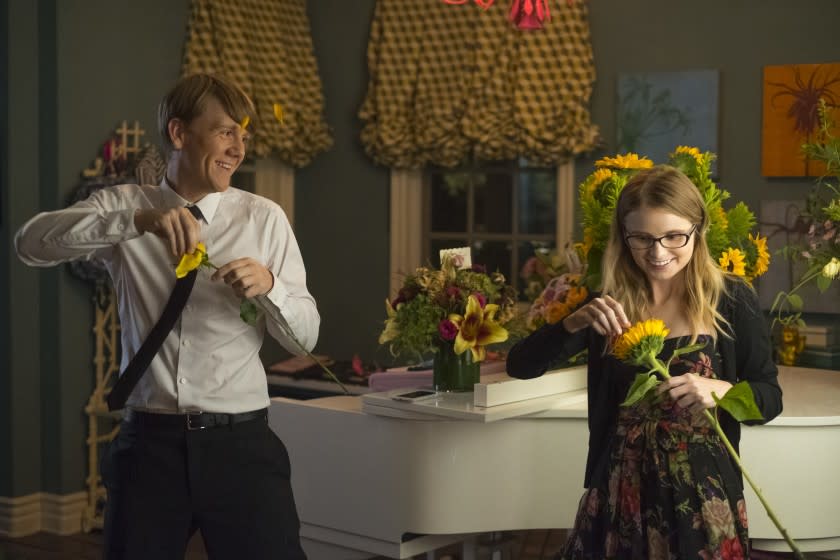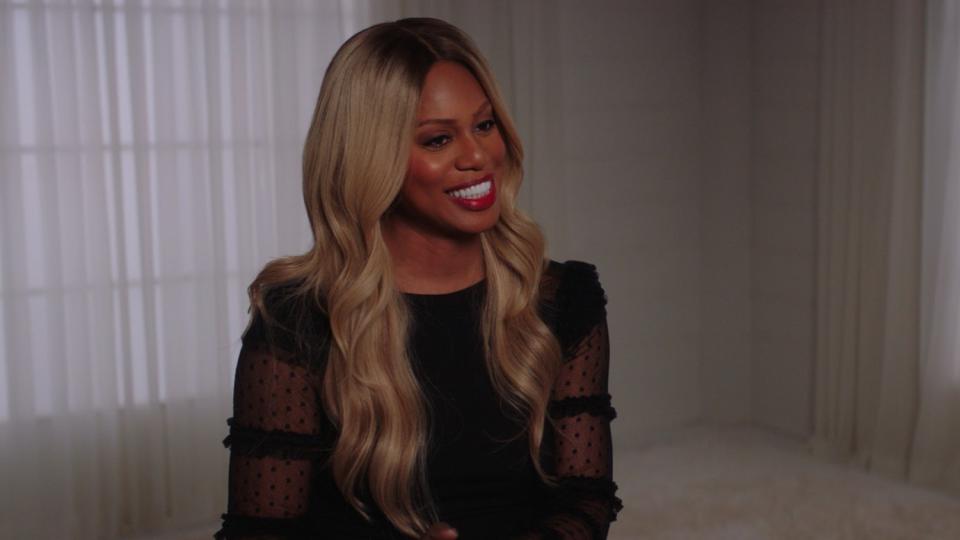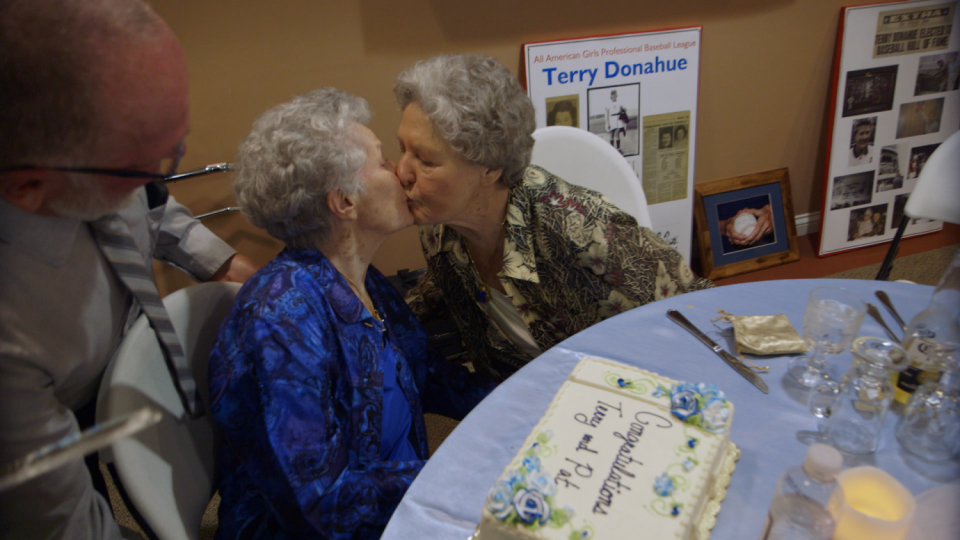10 TV shows and movies to keep the spirit of Pride going all summer long

June was Pride month, commemorating the 1969 Stonewall riots that birthed the gay liberation movement. As in other journeys toward recognition, equality and freedom to be, the world has come far, and not far enough. And as always, there are arguments about which way to go.
June may be over. But television goes on, and we would like to propose some recent relevant series to keep the party going. One caveat: Not all that follows constitutes a party.
'Pose-a-Thon'
"Pose-a-Thon,"available to stream.heart of "Pose."
'Visible: Out on Television'
long arc lesbian love storyVisible: Out on Television,"

A running theme of "Visible" is that we should look for ourselves reflected in popular culture, how what we find or fail to find changes us and how in the absence of real representation, we look for what we can adapt and use. (Kate Jackson was not explicitly lesbian on "Charlie's Angeles," but, on the testimony here, she was for many lesbian viewers.) LGBTQ characters have moved from guest shots to supporting parts to central roles — to being played, in the bargain, by performers whose identity matches the character's — as queerness has become something not always worth comment in and of itself. This too raises issues in a still imperfect world — as Times TV editor Matt Brennan pointed out in his piece on the series, the arc toward justice will require more bending.
'Disclosure'
"Visible" pairs well with (and overlaps) "Disclosure," a Netflix documentary specifically about trans actors and images, directed by Sam Feder and narrated and featuring "Orange Is the New Black" superstar Laverne Cox. Its view is less historical — though it supplies ample context, back to silent film — than it is concerned with the present and immediate future. Autobiographical, philosophical and political at heart, "Visible" and its contributors are erudite, articulate and disinclined to simplify.
'Welcome to Chechnya'
"Welcome to Chechnya"on-the-ground documentary
'Bully. Coward. Victim. The Story of Roy Cohn'
."Bully. Coward. Victim. The Story of Roy Cohn"
The film takes its title from a panel in the AIDS memorial quilt that director Ivy Meeropol and her father happened upon. It was a moment of particular significance for them, as Meeropol is the granddaughter of Julius and Ethel Rosenberg, whom Cohn helped send to the electric chair; he also was, significantly, a closeted gay man, who would die of AIDS complications. (Playwright Tony Kushner, interviewed here, made Cohn a main character in his "Angels in America.") A high-living social climber who made it a point of honor to pay as few bills as possible, and no taxes, Cohn was a mentor to Donald Trump, if that word may be used in such a negative context, and an attorney for various organized crime figures.
Cohn died in 1986, and Meeropol's film offers a picture of a gone world — a time when gay culture was influencing the mainstream, without the mainstream quite recognizing that fact. (Cohn was a regular in gay-friendly Provincetown, Mass., and at Studio 54.) Given the Rosenberg connection, "The Story of Roy Cohn" is remarkably even-handed, nearly sympathetic and more than a little sad. Cohn may have been a villain, but he was a victim not only of HIV but also of his generation. In hiding his sexuality, even as he was dying, his case was little different from that of actor Rock Hudson, who died of AIDS complications a year before Cohn. Both were 59.
'Hollywood'/'Now Apocalypse'
A fictionalized young Hudson, played by Jake Picking, is a central character in Ryan Murphy's Netflix miniseries "Hollywood." It's an alternative-history postwar fantasy in which fear of a gay Hollywood is overcome as early as 1947, giving Rock the happy beginning, and we assume the ending life denied him — or he denied himself in life. It is a weird mess of a show that works best taken not quite as seriously as it wants to be. But it works as a kind of camp art film — something along the lines of Gregg Araki's exuberant, future-camp, polysexual, porn-adjacent sci-fi farce "Now Apocalypse," a Hollywood fable of a different sort. Starz sent it into the world last year. But the glossy, madcap first season is still available to stream, and worth seeking out.

'Love, Victor'
Coming out is the main plot engine of "Love, Victor," a likable high school comedy-drama, from Hulu and a sequel to the film "Love, Simon." New kid in school Victor (Michael Cimino) wonders why he can't stop thinking about hot classmate/co-worker Benji (George Sear), even as popular Mia (Rachel Naomi Hilson) is ready to go steady. As modern teenage stories go, it's rather chaste and gentle, if rife with well-meaning confusion. Benji's conservative Latinx family will have some learning to do, and it is never really in doubt that they will.
A Secret Love'
"A Secret Love,"Pat Henschel and Terry Donahue
'Everything's Gonna Be Okay'
"Everything's Gonna Be Okay"
Fans of his earlier series will welcome again Thomas' particular brand of annoying charm. (It has been a while since we've seen him, but as he possesses the unique quality of appearing at once older and younger than his actual age —33 now — he seems essentially unchanged.) Queerness is a given here. Parenting is more the issue, which does make this a sort of turn on "Family Affair." ("Do you know how many gays had to die for us to do bingo?" is as political a line as you will hear.) The question of emerging identity is offloaded onto the girls, one of whom is autistic and sexually experimenting in a particularly scientific sort of way. And she may just turn out to be queer.

